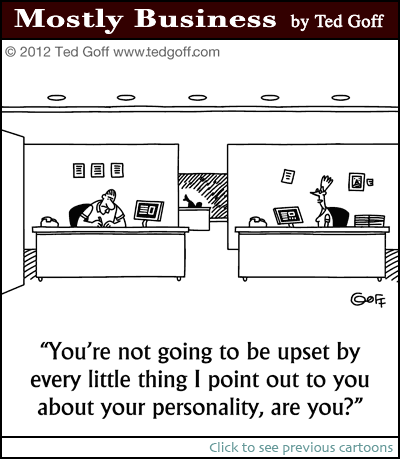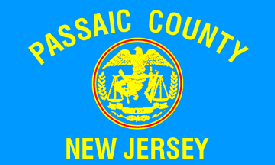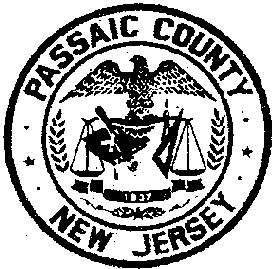
![]()
Terry Bogorad, a former assistant Passaic County, N.J., prosecutor's self-published book, "The Importance of Civility" came out this month.
"I decided to write a book because at every meeting I went to, lawyers were discussing how uncivil people were - not just clients but other attorneys," says Bogorad, 54, now in private practice.
"There is fighting among themselves and no respect in the courtroom. Older attorneys want to blame the younger ones, but I can tell you it's all of them being brats."
She theorizes that until the 1960s, communities were close-knit because people needed each other to survive. As we became busier and less reliant on neighbors, we stopped making friends and, eventually, even forgot how to be cordial.
![]()
Being Civil Means More Than Just Rote Manners
Sunday, October 22, 2006
Margaret Shepherd's doorbell rings in the middle of a phone interview.
"Can you hang on a minute?" she asks, and then chides herself. "This is so uncivil," she says apologetically.
Shepherd should know. The author of "The Art of the Handwritten Note" and "The Art of Civilized Conversation" has spent years exploring the failures of modern human interaction.
"When digital communication came in, people thought all the rules went out the window," she says. "Now the wave has receded, and we see what's still needed when it matters: Conversation that actually takes effort and concentration."
It may be needed, but few do it, says Terry Bogorad, a former assistant Passaic County, N.J., prosecutor whose self-published "The Importance of Civility" came out this month.
"I decided to write a book because at every meeting I went to, lawyers were discussing how uncivil people were - not just clients but other attorneys," says Bogorad, 54, now in private practice.
"There is fighting among themselves and no respect in the courtroom. Older attorneys want to blame the younger ones, but I can tell you it's all of them being brats."
She theorizes that until the 1960s, communities were close-knit because people needed each other to survive. As we became busier and less reliant on neighbors, we stopped making friends and, eventually, even forgot how to be cordial.
"Civility is a form of goodness resulting from an awareness of others," Bogorad says. "It's about more than being polite. Our communities depend upon us being nice to each other."
She notes that spiraling youth violence, domestic violence and victimization can be linked to inadequate social skills.
"When you know how to interact civilly, you learn to share control, to look at what you can sacrifice to get the other person to sacrifice. But nobody wants to sacrifice anymore."
The lack of civility is apparent in everyday situations, she says. And she's as guilty as the next person.
"I've been known for my profanity and lack of tact," she admits. "I have been able to reduce the amount of profanity since I started writing the book, and I'm more willing to sacrifice certain points rather than argue till I'm blue in the face."
Civility is not just an adult problem, however.
Students at Nicholls State University in Louisiana have been asked to sign a declaration of civility as part of a project started by Judy Daniels, dean of student life, after she observed "vulgar language, racial slurs and inappropriate comments towards women" on campus.
"Student behavior is an issue for communities across the country," Daniels told the student newspaper. "The issue seems to be related to the deterioration of students behaving civilly, respectfully and appropriately for college."
Bogorad applauds this effort, and she hopes her book will be used in classrooms as a tool for learning greater civility and not just good manners.
"Etiquette has you do certain things robotically to make people comfortable, and that's good," she says. But meaningful interaction takes more than scripted rules, and she believes we need some training to do it well.
That's Shepherd's aim in offering guidelines for civilized conversation: Don't ramble. Don't gossip. Don't bore. Disagree carefully.
"Face-to-face conversations are the gold standard for socialization," she says.
Assuming most of us are clueless, she provides situation-specific lines for job interviews, cocktail parties, buses and bleachers, nursing homes, funerals, first dates. She suggests how to apologize, how to accept a compliment or respond to an insult, how to take criticism.
For example: If someone offers unsolicited advice with which you don't agree, try: "I do it that way on purpose, but I value your input" instead of "Don't tell me how to run my life."
"There are things you can do to make your words come across better, and the result is connecting with people better," says Shepherd, whose third book is to be titled "The Art of Bringing People Together."
"It's not a secret knack, but a learnable craft, like cooking."
And the best place to start learning that craft, says the mother of four young adults, is at the family dinner table.
"The conversation won't always be civilized, but at least kids will get the idea that you show up and sit down and say thanks for dinner. It gives them a form to follow," says Shepherd.
By the way, Shepherd writes, you can overkill a "thank you" by adding phrases such as "Now I owe you" or "You're so great."
But when appropriate, follow up your verbal thanks with a handwritten note. It's the civil thing to do.
"The Importance of Civility" author Terry Bogorad says we can be more agreeable members of our communities if we:
- Acknowledge everyone we meet - even those we don't like - with a smile and a nod.
- Put more effort into listening. Let others finish speaking before formulating a response.
- Choose to sacrifice a small point during a disagreement, rather than be rude.
- Try something new in order to meet new people, broaden our horizons and give us fodder for meaningful conversation.
![]()
Send an e-mail message with a link to this article to anyone/everyone in your address book. Click on e-mail [envelope] icon, below |
![]()


































0 Comments:
Post A Comment